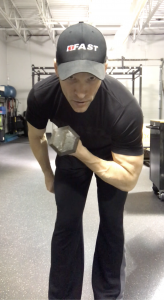Grab your @neurocoffee and get ready for today’s Q & A! How are you dissociating sacral movements to pelvic orientations, and how do they show up in testing? What are your key indicators and where do you see common compensations around expected limitations based on their initial ISA/IPA presentations? My second question is based on […]
IFAST
Too Simple Solution: An Exercise for Wrist Pain with Push-ups
Dumbbell curls as a solution for wrist pain with your push-ups, pressing exercises, and bear crawls? Too simple? #wristpain #pushups #billhartmanpt Find Bill: Instagram Facebook Twitter LinkedIn
Q & A for The 16% – The Why, When, and How of Inversion Exercises
Question: From Vik: Can you discuss the utility of inverted positions? What compensatory strategies is this position useful for? What are some examples of inverted activities you use or have used? In this video: I offer a perspective on why you would want to invert a patient, client, or athlete, when inversion is a useful […]
Q & A for The 16% – Axial Iterations and Treating with Biomechanics vs. The Biopsychosocial Model
Q & A for Today… From Zhang: You’ve talked about iterations in previous videos. Does the posterior sacral area behave the same as the dorsal rostral area? Does the lower thorax behave the same as the posterior outlet, and, the anterior pubic area behaves the same as the sternum? From Johnny: as clinicians, what are […]
Bill Hartman Podcast for The 16% – Season 2, Number 2
Topics on this Podcast for The 16%: 1. Q & A for The 16% – The Complex Client – Circle of Competence and Behavior Change 2. Q & A for The 16% – How and Why? – Heels-Elevated Squat 3. Q & A for The 16% – Eccentric Emphasis Training – Flywheel training 4. Q […]




